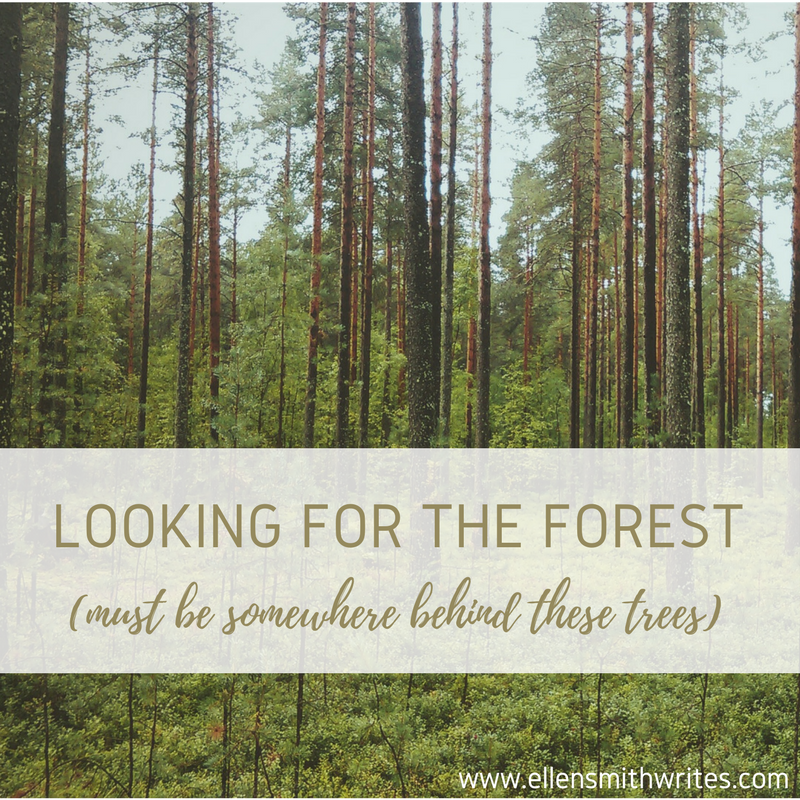Sometimes you find the exact words you're looking for hidden in the pages of a book.
And sometimes, in a bizarre turn of events, that book is one you wrote yourself.
Today marks twelve weeks since my foot surgery. I have some mixed feelings about that milestone, especially since I still have a long way to go. I'm working hard in physical therapy and I am so grateful for the progress I've seen so far. However, I've had a few setbacks the past few months. Healing is a slow process. Just to give you an idea of how I've been handling that, I'll tell you: when I called my doctor's office a few days ago, instead of saying "I'm a patient of..." I accidentally said, "I'm impatient..."
Freudian slip, anyone?
Throughout this long recovery, I've been holding out for a moment when I'll feel "normal" again--or even a time when I'll hit a new normal. I thought maybe it would be when I ditched the crutches, or when I was finally able to drive again, or when I had more energy and less pain. And then I remembered:
Even though I don't feel "normal" yet, my broken, beautiful life is happening now. That includes my writing life. Projects for my freelance clients always come first, but I've still managed to squeak out some energy for editing the Time Wrecker Trilogy. It's so easy for me to get frustrated by the ways my current life compares to my old writing routine, but you know what? I'm going to refocus on how much I love this story, and how determined I am to get it right. Every step forward is worth celebrating because it brings me a little closer to my goal.
It was so funny to me that the words I needed to hear were tucked away in the first book of the Time Wrecker Trilogy, Every Last Minute. They're spoken by Renee Rasmussen, the "voice" behind one of the editorials included in the novel. The full text is below. I hope you enjoy this little excerpt!
You Get One Life
By Renee Rasmussen
One life.
One time.
One chance to get things right.
There are so many times that I’ve waited and wished and prayed for a second chance, only to be denied. Have you read all the articles out there about timeline rectification? I have. Have you looked up an inmate in the system to see if they’re nearing eligibility for parole . . . meaning they might have a shot at getting into the rectification program? I have. Have you written personal letters begging an inmate to consider a rectification? I’ve written over 200—averaging one a week for four years.
I had a perfectly ordinary life until I was thirty-two years old. Not perfect, mind you. Perfectly ordinary. I had a roommate who was friendly and a cat with terrible cat-food breath and a job I liked well enough but wasn’t a career.
And then, one day, in the middle of my very ordinary existence, I was knocked unconscious. I woke up in a hospital bed, attached to more monitors than I’d ever seen in my life. My apartment had been broken into by two teens who were high on drugs and looking for anything they could steal and sell on the black market. I didn’t know them, and neither did my roommate. Our door was locked. Our blinds were shut. We just had the bad luck to be in the first-floor apartment when these two men got the idea to break in.
They were arrested quickly, did us the favor of admitting their guilt, and are currently serving their sentences. This is where the story gets interesting: at the end of the trial, my lawyer turned to me and said, “Give it a few years. If they qualify for the rehabilitation program, you’ll probably get a time wreck. This isn’t forever.”
This isn’t forever. I clung to those words as I tried to rebuild my life. My roommate was too traumatized to consider another apartment in the city. She ended up moving back to her home state to be with family. She took the cat too. I hope they’re doing well, but to be honest, the whole experience was so hard that we can’t talk without it all bubbling back up.
I don’t have my old job anymore. When it reached the point that I’d been in the hospital longer than I’d ever worked there, they let me go—and legally, they had no obligation to keep me for as long as they did. Finding a new job and getting insurance with what are now “preexisting conditions” was a nightmare. I’d like to go back to counseling, but I can’t afford it. I think a vacation could be restful, but I have to save up all my days off in case I need another surgery.
For years, the only thing that kept me going was the chance that someday, I might get a timeline rectification. Believing that all my struggles were temporary helped me handle every challenge.
At last, the time came when the criminals could qualify for the rehabilitation program. They both signed up.
They both dropped out.
I felt like I was going crazy when I found out they’d left the rehabilitation program. What happened? Why did they change their minds? Could they try again? Finally (after I wrote many, many letters), one of them wrote back. He had been willing to put forth the effort to rehabilitate, but his partner in crime wasn’t. Prison was working for him. He was powerful there, respected. He didn’t want to change. The other criminal—the one who had written to me—was very sorry, but unless they were both willing to rehabilitate, a time wreck would be impossible. He was working toward his own parole, apologized again for his actions, and wished me well.
This is forever. It took me one letter to realize it, but much, much longer to believe it. For over a year, I devoted myself to the cause of convincing these two men to change their minds.
But after a while, I began to realize that I simply couldn’t change people who weren’t willing to change. The only person I could rehabilitate was myself. And so—slowly, painfully—I began the long, hard process of accepting my reality.
This is the problem with time wrecking: it lets victims focus on changing the past instead of shaping the future. At some point, we all must decide whether we’re going to keep looking back or start moving forward. My journey has been full of stops and starts and many, many backward glances, but I am finally moving forward. At last, I’m starting to heal.
This is forever—this one broken, beautiful life. We’re only guaranteed one chance to do it right.
Let’s make it count.






